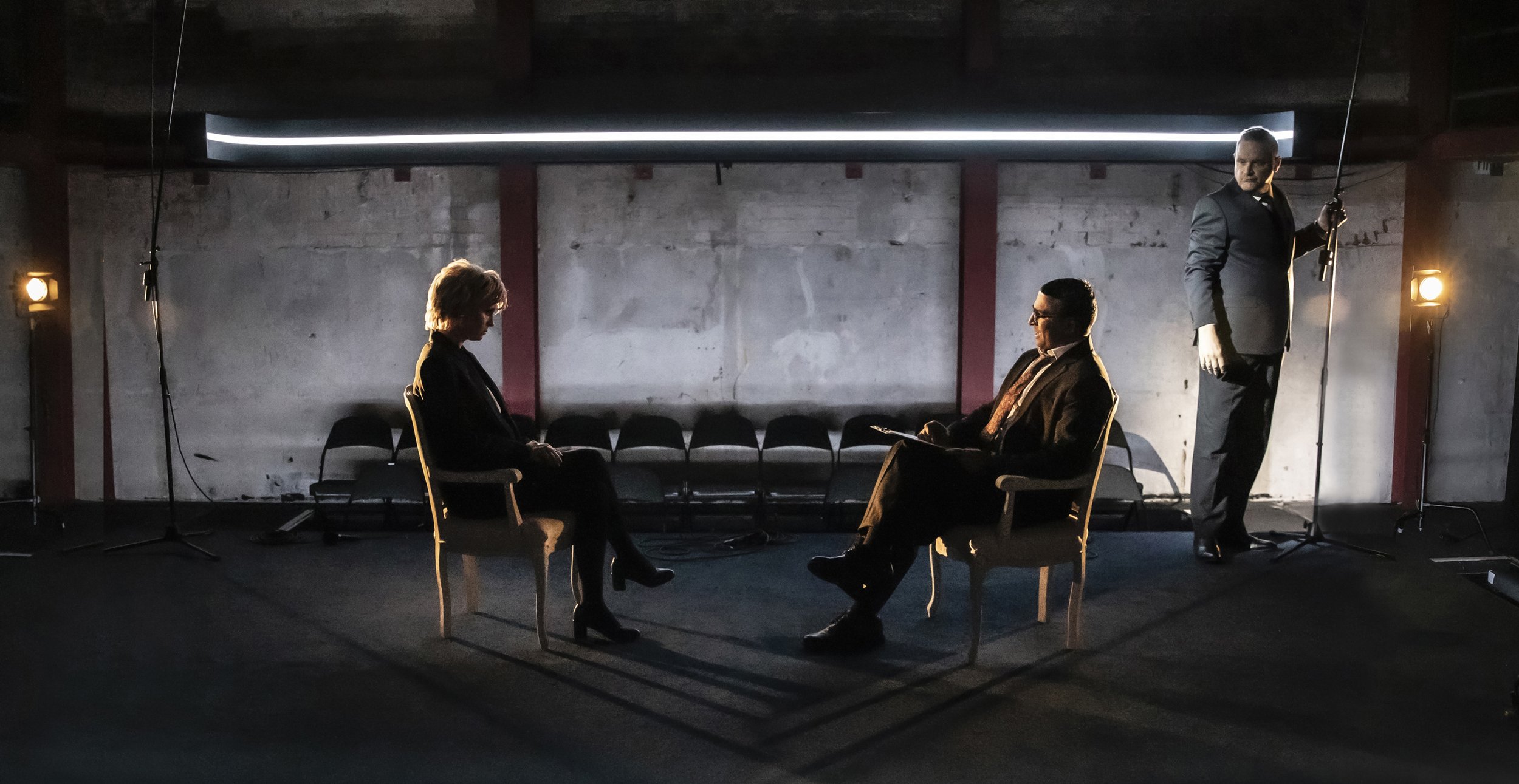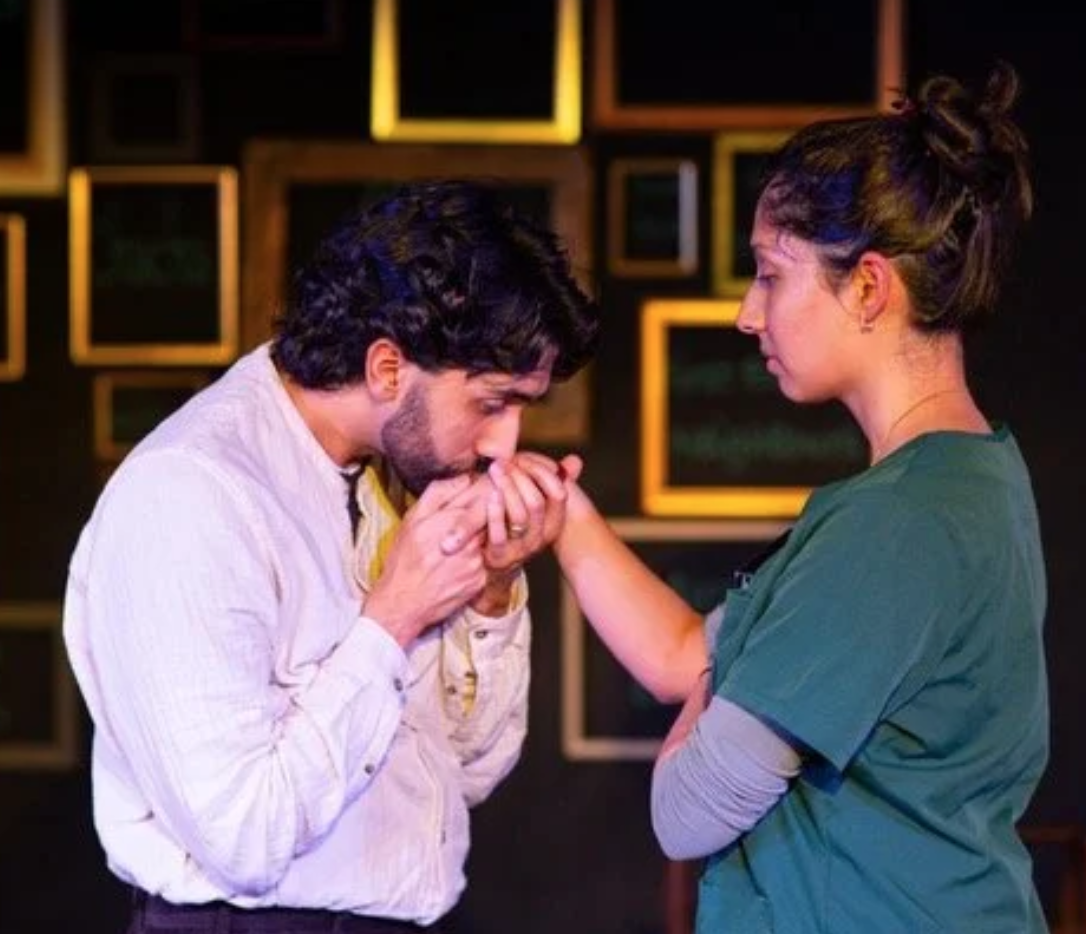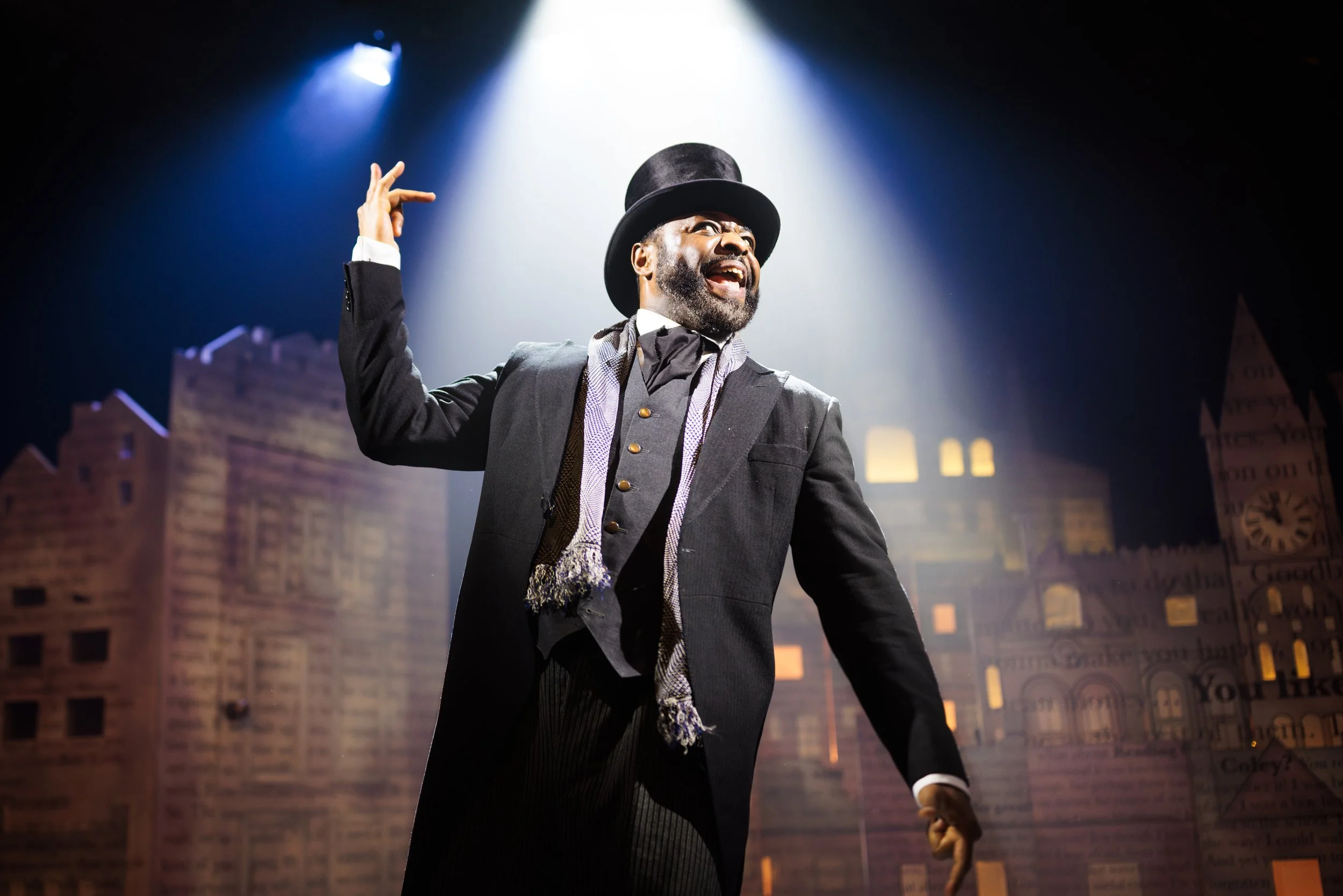REVIEW | The Interview, Park Theatre
Yolanda Kettle, Tibu Fortes and Matthew Flynn in The Interview. Credit: Pamela RaithWritten by Eleanor
Disclaimer: gifted tickets in exchange for an honest review.
‘The Interview’ focuses on the BBC Panorama programme arranged between Martin Bashir (Tibu Fortes) and Diana, Princess of Wales (Yolanda Kettle) and the impact of this controversial broadcast on the lives of those involved. This play, written by Jonathan Maitland and directed by Michael Fentiman, explores how the Panorama interview was planned, actualised, and the fallout both at the time and 25 years later.
This is a topic I am interested in and studied before visiting Park Theatre. I do think this helped me understand some of the more specific details and people mentioned in the play (like the brief mention of Andrew Morton, for example), but the wider themes discussed here are important and will be of interest to many. But I must admit that the wider commentary ‘The Interview’ took on may have been a little too broad.
The show opens with complete darkness and an original recording of the 1994 interview Charles (then Prince Charles) gave to the BBC in which he confirmed he had been unfaithful during his marriage to Diana. It is this catalyst that then fuels the rest of the plot, giving Diana clear motivation for wanting to give an interview herself. Bashir and Diana are initially shown as one in the same: two people who in their own settings are not congratulated for their efforts and whom many did not want to see succeed. I found it particularly fascinating how they both believe they are influencing the other, in that Bashir wants to advance his career at the BBC and Diana wants to use his platform to tell her side of the story. However, we as the audience come to understand that Bashir gained access to Diana using unfair means and that the power balance between them is not as fair as first established. He used Diana's growing distrust of the Palace, the wider press, and the people around her to manipulate her. The way this dynamic shifted was really interesting to watch and helped keep a steady pace in the first half of the show. Although you ultimately know how it will conclude, with Diana sitting down to do the interview, the changing viewpoints and the way shorter conversations shift between each other were very engaging.
The second act of ‘The Interview’ starts with the editors of the BBC reviewing the video footage of the interview. I very much enjoyed how this was staged. The actors playing the editors were crouched on the floor of the stage while wearing headsets as if watching a monitor, looking out to the audience where Yolanda Kettle sat and recounted Diana’s exact words from the broadcast. With the stage itself practically bare, this breakaway really helped add more interest to the scene. The segment set in 1995 then ends with the question of how ethical the broadcast was and whether it should continue to be on public record. It is here that there was a significant tonal shift in the play.
The rest of The Interview is set 25 years later. Broader ideas of truth versus the agreed narrative are discussed by human representatives of these ideals. The audience is then encouraged to think about whether we are able to determine the truth in a world of unreliable news outlets and social media.
This is all with the backdrop of the 2020 inquiry into how Diana’s interview was obtained. The show seemingly concludes that Bashir exacerbated Diana’s paranoia to get the interview, but then leaves the audience to make its own conclusions as to whether Diana was able to make the decision to talk.
There were many aspects of this production which I enjoyed. The small ensemble (comprising of Matthew Flynn, Naomi Fredrick and Ciaran Owens) and the small theatre made it feel really intimate like you were actually listening into these private conversations. There was also a very minimal set and props used, but due to the nature of the production, I do not think this hindered the storytelling.
With little scenery, the actors had very little to fall back on – and it was the joint dynamic of Tibu Fortes as Martin Bashir and Yolanda Kettle as Diana which carried the show. Yolanda in particular was instantly recognisable as her real-life counterpart (thanks in part to Sami Fendall’s costume design). She had clearly taken time to study Diana’s mannerisms and speech patterns, which helped make her a more believable character on stage.
Unlike the last show I saw at Park Theatre, The Interview is staged in the round, with members of the audience on all sides of the stage. I did unfortunately feel from where I was sat that I spent the majority of the time looking at the back of Diana’s head, which was a real shame in some scenes. The play was always at its most engaging when Diana was on stage, to the detriment of much of the second act.
Overall, I could clearly see the aims of ‘The Interview’ and what it was trying to achieve. The impact of the press on Diana’s life is frequently discussed, and it was interesting to see how this moment in her history played such an important role. The story also feeds into wider and more important topics of trust, truth and morality. But it is as these broader themes appear that the pacing slows. Martin Bashir is a very engaging character in this show, and Tibu Fortes is an excellent lead, but I always found myself wanting to see and hear more from Diana in a meaningful way.
The Interview is running at Park Theatre from the 27th October until the 25th November.












